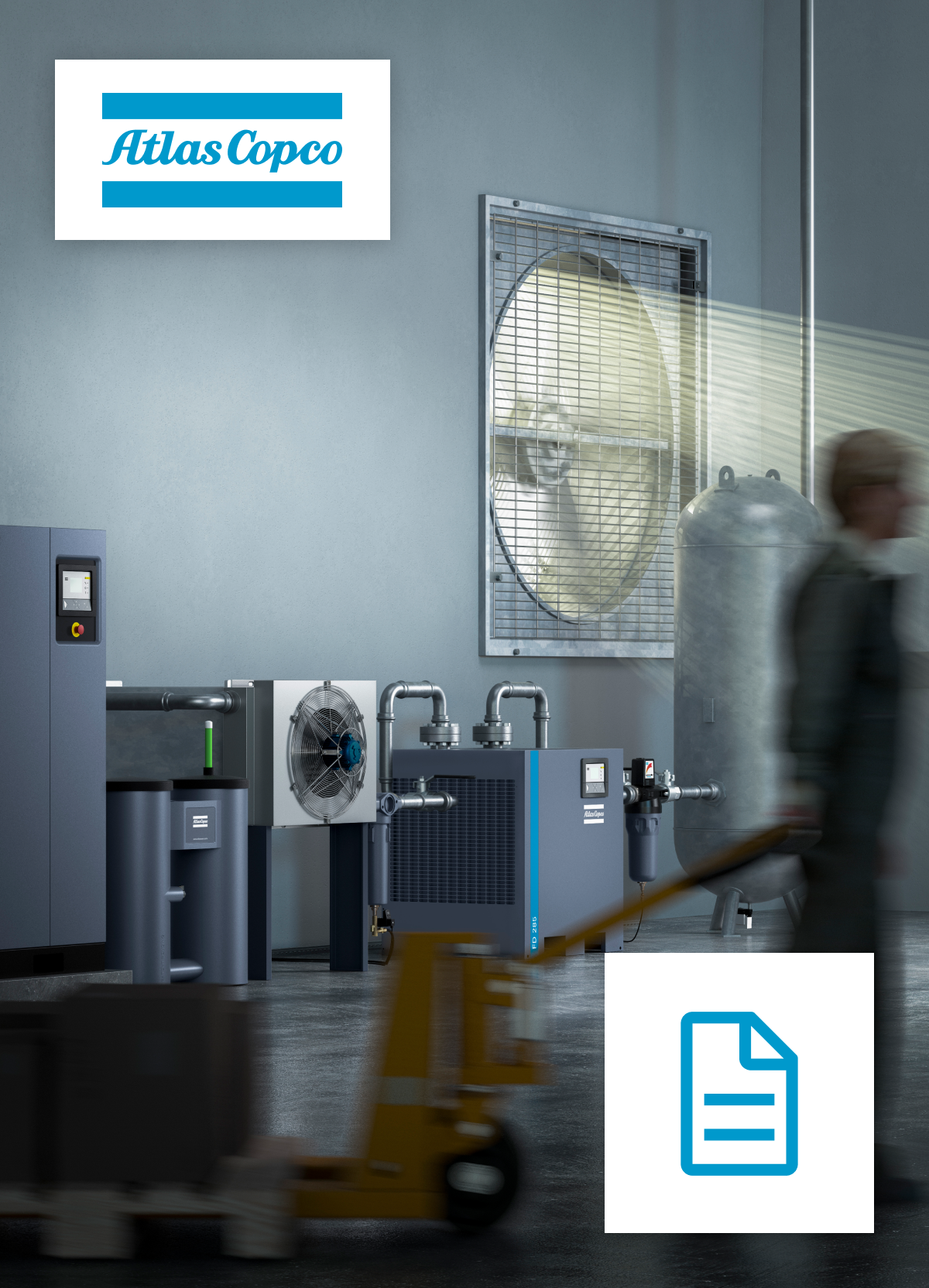เครื่องผลิตก๊าซออกซิเจน
เครื่องผลิตก๊าซออกซิเจนรุ่น OGV+ VPSA
เครื่องผลิตก๊าซออกซิเจนรุ่น OGV+ VPSA สำหรับความต้องการก๊าซออกซิเจนมากกว่า 100 kg/h

- คำอธิบาย
- อุตสาหกรรม
- คุณประโยชน์
- VSA, VPSA และ PSA
- ข้อมูลจำเพาะ
- ดาวน์โหลด
- ผลิตภัณฑ์ที่เกี่ยวข้อง
- การซ่อมบำรุง การบริการ ติดต่อเรา
คำอธิบาย
เครื่องผลิตก๊าซออกซิเจนสำหรับอุตสาหกรรมรุ่น OGV+ VPSA
เครื่องผลิตก๊าซออกซิเจนสำหรับอุตสาหกรรมรุ่น OGV+ VSA ใช้เทคโนโลยีชนิดไร้น้ำมัน 100% และยังมีชั้นการทำให้อากาศอัดแห้งในตัวและอัตราส่วนเทิร์นดาวน์ขนาดใหญ่ พร้อมกับโบลเวอร์ปริมาณการไหลและเครื่องแยกแบบปรับความเร็วได้เพื่อการประหยัดพลังงานสูงสุด

เครื่องผลิตก๊าซออกซิเจนสำหรับอุตสาหกรรมรุ่น OGV+ VPSA มีการทำงานอย่างไร
เครื่องผลิตก๊าซออกซิเจนรุ่น OGV+ VPSA ของ Atlas Copco ประกอบด้วยสองคอลัมน์การดูดซับคู่ขนานกันเป็นลำดับชุดที่สลับด้วยวาล์วควบคุมอัตโนมัติ แต่ละคอลัมน์ประกอบด้วยชั้นการทำให้อากาศอัดแห้งที่จะขจัดความชื้นและก๊าซ CO2 ตามมาด้วยชั้นดูดซับประเภทซีโอไลต์ที่จะแยกก๊าซไนโตรเจนออกจากอากาศ เพื่อคงก๊าซออกซิเจนเอาไว้
ในกระบวนการ VPSA นี้จะทำการส่งอากาศผ่านโบลเวอร์เข้าไปยังหนึ่งคอลัมน์การดูดซับเพื่อแยกก๊าซออกซิเจนในอากาศออกจากก๊าซไนโตรเจน เมื่อซีโอไลต์ในคอลัมน์นี้อิ่มตัวด้วยก๊าซไนโตรเจนที่ดักจับได้แล้ว จะสลับวงจรการดูดซับไปยังทาวเวอร์อื่นโดยอัตโนมัติ เริ่มการดูดซับจากชั้นที่ฟื้นฟูขึ้นใหม่ เพื่อการจ่ายก๊าซออกซิเจนที่ต่อเนื่อง
ในขณะเดียวกันทาวเวอร์ ‘ที่อิ่มตัว’ ก่อนจะได้รับการฟื้นฟูขึ้นใหม่โดยปั๊มแยกที่จะแยกความชื้นและก๊าซไนโตรเจนออกจากวัสดุดูดซับ ทำให้พร้อมที่จะใช้ได้อีกครั้ง
อุตสาหกรรม
คุณประโยชน์
คุณประโยชน์






VSA, VPSA และ PSA
อะไรคือความแตกต่างระหว่าง VSA, VPSA และ PSA
Oxygen VSA (Vacuum Swing Adsorption), Oxygen VPSA (Vacuum Pressure Swing Adsorption) และ Oxygen PSA (Pressure Swing Adsorption) เป็นกระบวนการที่ใช้เพื่อแยกก๊าซออกซิเจนออกจากก๊าซอื่นๆ ในอากาศ กระบวนการเหล่านี้มักประกอบด้วยสองคอลัมน์การดูดซับคู่ขนานกันเป็นลำดับชุดที่สลับด้วยวาล์วควบคุมอัตโนมัติ แต่ละคอลัมนมีชั้นดูดซับประเภทซีโอไลต์ที่จะแยกก๊าซไนโตรเจนออกจากอากาศเพื่อคงก๊าซออกซิเจนเอาไว้
เทคโนโลยี VSA และ VPSA จะใช้โบลเวอร์เพื่อป้อนอากาศเข้าสู่เครื่องผลิตก๊าซออกซิเจนเพื่อผลิตก๊าซออกซิเจน อย่างไรก็ตาม VSA และ VPSA มีความแตกต่างที่สำคัญคือ VSA จะมีแรงดันส่งทั่วไปของโบลเวอร์สูงสุดที่ 200-300 mBar (3-4 psi) สำหรับ VPSA จะมีแรงดันส่งทั่วไปของโบลเวอร์อยู่ระหว่าง 300-1000 mBar (4-15 psi) ทำให้เทคโนโลยี VPSA สามารถจ่ายก๊าซออกซิเจนในแรงดันที่สูงกว่า
เพื่อให้สามารถขจัดโมเลกุลก๊าซไนโตรเจนที่ดักจับได้ ทั้งเทคโนโลยี VSA และ VPSA จึงใช้ปั๊มสุญญากาศเพื่อขจัดก๊าซไนโตรเจนที่ดักจับได้ในขั้นตอนการดำเนินการที่เราเรียกว่าการฟื้นฟู ในทั้งสองเทคโนโลยีจะมีระดับความดันสุญญากาศที่เท่ากัน
ดังนั้น Oxygen VSA และ Oxygen VPSA มีความแตกต่างหลักๆ คือ VSA นั้นทำงานที่แรงดันโบลเวอร์ที่ต่ำกว่า ในขณะที่ VPSA จะทำงานที่แรงดันโบลเวอร์ที่สูงกว่า และมักใช้งาน VSA ในการใช้งานความบริสุทธิ์ที่ต่ำกว่า ในขณะที่ VPSA นั้นสามารถผลิตก๊าซออกซิเจนที่มีความบริสุทธิ์ที่สูงกว่า
PSA คืออะไร PSA นั้นคล้ายกับ VPSA แต่ซับซ้อนน้อยกว่าโดยไม่มีปั๊มสุญญากาศ แต่จะใช้เครื่องอัดอากาศหรือปั๊มลมแทนที่โบลเวอร์ในการจ่ายอากาศด้วยแรงดันประมาณ 7 Bar (100 psi) ไปยังชั้นซีโอไลต์ และเมื่อชั้นซีโอไลต์ใน PSA อิ่มตัวด้วยก๊าซไนโตรเจนที่ดักจับได้แล้ว แรงดันจะลดลงเท่ากับแรงดันบรรยากาศ ที่จะคายก๊าซไนโตรเจนโดยอัตโนมัติ โดยไม่ต้องใช้ปั๊มสุญญากาศ ทำให้เหลือก๊าซออกซิเจนบริสุทธิ์ไว้ การใช้เครื่องอัดอากาศหรือปั๊มลมแทนโบลเวอร์ ทำให้โดยทั่วไปแล้วมีแรงดันจ่ายก๊าซออกซิเจนอยู่ที่ 3.5 Bar (50 psi)
ข้อมูลจำเพาะ
ข้อมูลจำเพาะทางเทคนิค
| Model | Flow at 93% oxygen level | Dimensions CM-In | Weight | ||||||
|---|---|---|---|---|---|---|---|---|---|
| Nm3/h | scfm | kg/h | tons/day | W | D | H | kg | lbs | |
| OGV80+ | 80 | 47 | 105 | 2.5 | 2477-975 | 2989-1177 | 3609-1421 | 4086 | 9008 |
| OGV105+ | 105 | 62 | 138 | 3.3 | 2523-993 | 3042-1198 | 3609-1421 | 4710 | 10383 |
| OGV160+ | 160 | 94 | 210 | 5 | 2714-1068 | 3233-1273 | 3770-1484 | 6432 | 14290 |
| OGV270+ | 270 | 159 | 355 | 8.5 | 3578-1409 | 3899-1535 | 4037-1589 | 10140 | 22354 |
| OGV400+ | 400 | 235 | 525 | 12.6 | 3891-1532 | 4260-1677 | 4227-1664 | 14090 | 31063 |
